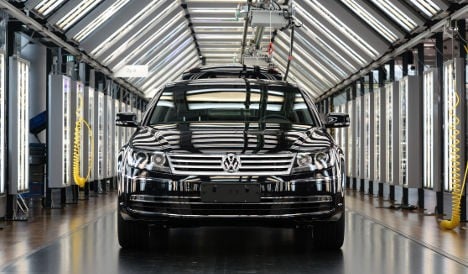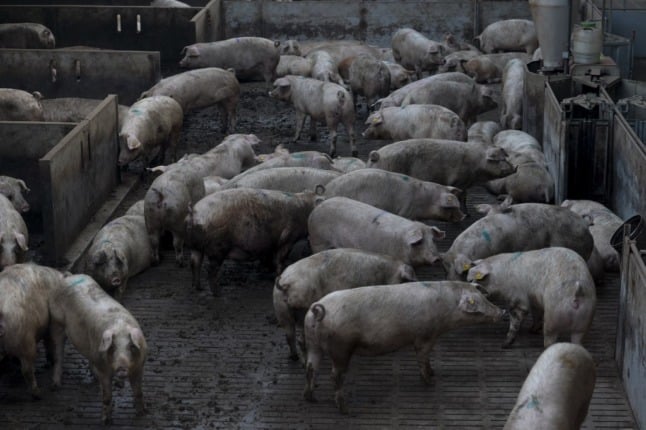Investors say the automaker failed to disclose details of the case in a timely way, leading them to lose money as the group's share price plunged by 40 percent in two days after the crisis erupted last September.
The $9.1 billion in claims are mostly made up of “bundled” actions containing lawsuits from multiple plaintiffs, many of them private investors, according to the court in Brunswick, close to VW's Wolfsburg, Lower Saxony headquarters.
The US government and several German state governments are also among the claimants.
Another claimant is Blackrock, the world's largest fund manager, and a group of institutional shareholders who are suing VW for €2 billion euros.
A spokesman for Volkswagen reiterated the carmaker's position that it “continues to believe that we comprehensively fulfilled our obligations under capital markets law and that the claims are unjustified.”
There was little reaction on the Frankfurt stock market to the news, with Volkswagen shares gaining around 0.7 percent by just after 1330 GMT.
Cars fixed 'within a year'
Volkswagen's troubles began in September 2015 when it admitted installing so-called “defeat devices” in 11 million diesel vehicles worldwide, which increase exhaust treatment when the car detects it is undergoing regulatory tests.
The software deactivates the emissions system when the car is on the road, leading to levels of harmful nitrogen oxides in the exhaust many times higher than allowed.
Most of the cars affected bear the Volkswagen logo, but vehicles made by the group's Audi, Skoda and Seat brands were also among those equipped with the software.
During talks with a top EU official on Wednesday, Volkswagen pledged to ensure that all cars across the bloc were fixed by autumn 2017, the European Commission said in a statement.
“Today Volkswagen committed to a plan of action across the EU which is an important step towards a fair treatment of consumers,” justice and consumer protection commissioner Vera Jourova said.
During the talks, the car giant pledged “to ensure all vehicles are repaired by autumn 2017,” and to supply consumers with a “proof of conformity” certificate, Commission spokesman Christian Wigand said.
VW faces a string of legal claims and investigations around the world.
The group has set aside 18 billion euros to pay for the legal costs of the crisis and has so far agreed to pay $15 billion in compensation and fines in the United States alone.
Analysts estimate the final bill could reach up to €35 billion.
'Difficult to prove’
Investors have rushed to file compensation claims at the Brunswick court ahead of what they believe to be a one-year deadline for lodging complaints.
On Monday alone 750 new claims were registered.
The court said it has taken on extra staff and hired additional storage space to cope, with the avalanche representing half the number of cases the tribunal normally hears in a year.
“The complete registration of the claims arrived up to now should be finished in four weeks,” it said.
A single plaintiff will be designated “in the fourth quarter of 2016 at the earliest,” it went on, to represent all the investors wishing to join forces in a common case designed to save legal costs.
German law does not allow for class-action suits.
The case's prospects for success may be limited, however.
“History has shown that it's very difficult to prove damages of this type in Germany and win a legal case like this,” analyst Frank Schwope of Nord/LB bank told AFP.
In a similar case relating to Porsche's failed takeover of VW, a Stuttgart court in 2015 found against investors claiming damages over the timing of the luxury carmaker's communications.
In this case, VW might strike out-of-court settlements with some plaintiffs, while the court is unlikely to award the full amount of compensation investors seek, Schwope said.
The carmaker will not find itself reaching for its pocketbook soon as “the case could last for years,” he went on.
Volkswagen's share price remains around 20 percent lower than it was before the crisis broke.
But while the financial pain bites deep for the firm, recent figures show sales are holding up despite the blow to its reputation.



 Please whitelist us to continue reading.
Please whitelist us to continue reading.
Member comments